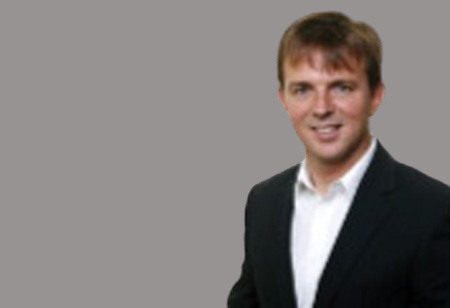Thank you for Subscribing to Healthcare Business Review Weekly Brief

The Threat of Biological Hazards
Healthcare Business Review
COVID-19 has changed the world. Health care workers (HCWs) understand that COVID-19 and other biological hazards can have serious consequences. We work with many dangerous diseases. But now the public whether it be through lockdowns, inability to travel, mandatory vaccinations or lack of toilet paper on supermarket shelves, have learnt that biological hazards have impacts.
I worked for almost 2 years in Qatar, as the senior consultant in Occupational Medicine from 2019 to 2021. My job was to protect the health of the employees in the hospital. None of the nurses, doctors or other employees in the Qatar hospitals died of COVID-19 during the pandemic waves.
 Infection prevention and control, PPE, testing, tracing, quarantine and isolation, then vaccination worked. In many hospitals across the world, many HCWs died. The health industry can protect HCWs. With specialists who are empowered to make decisions, HCWs lives can be saved.
Infection prevention and control, PPE, testing, tracing, quarantine and isolation, then vaccination worked. In many hospitals across the world, many HCWs died. The health industry can protect HCWs. With specialists who are empowered to make decisions, HCWs lives can be saved.
I was fortunate to work in two countries that had the resources to care for its HCWs. Australia had kept COVID out through a variety of measures and was relatively COVID free when I returned in mid 2021. As the new Group Medical Director of Aspen Medical in Australia, I experienced the Omicron waves which caused millions of infections across Australia in early 2022.
 Aspen Medical had assisted some companies implement mandatory vaccination policies and vaccination rates across the country were high at that time. Our health care workers were also lucky Australia was fortunate that Omicron was less severe than earlier variants. .
Aspen Medical had assisted some companies implement mandatory vaccination policies and vaccination rates across the country were high at that time. Our health care workers were also lucky Australia was fortunate that Omicron was less severe than earlier variants. .
The Australian Open ran through the peak of the BA1 wave and the Grand Prix through the peak of the BA2 wave. Aspen Medical assisted and was able to keep the infection rates low in both sporting events. I have learnt that you can make a difference both on a small scale and a large scale.
Public health, risk management, and decision makers do have an impact. There is no doubt I was fortunate. Both countries I worked in (Qatar and Australia) have done well. The death rates were approximately 10 times lower than in other wealthy countries such as USA and the UK.
“Vaccinate, Vaccinate, Vaccinate Is My Motto. It Is A Cost-Effective Risk Management Strategy When Available”
 I have studied many infectious diseases over the years including avian influenza (H5N1). H5N1 continues to spread, and H3N8 has recently infected humans in China. I am still intimidated by influenza. The perils of post viral pneumococcus which contributed to many deaths post COVID and post influenza. The menace of meningits and malaria. The terror of Tuberculosis now resistant to treatment. Typhoid and tetanus take lives daily in the developing world. The likelihood of legionella and leptospirosis post floods and other natural disasters. The hazard of hepatitis and heamorrhagic fevers including Ebola. The danger of dengue and the ongoing vulnerability to vibrio (cholera). The risk of reptiles (venomous snakes) remains. Monkeypox media made the recent news.
I have studied many infectious diseases over the years including avian influenza (H5N1). H5N1 continues to spread, and H3N8 has recently infected humans in China. I am still intimidated by influenza. The perils of post viral pneumococcus which contributed to many deaths post COVID and post influenza. The menace of meningits and malaria. The terror of Tuberculosis now resistant to treatment. Typhoid and tetanus take lives daily in the developing world. The likelihood of legionella and leptospirosis post floods and other natural disasters. The hazard of hepatitis and heamorrhagic fevers including Ebola. The danger of dengue and the ongoing vulnerability to vibrio (cholera). The risk of reptiles (venomous snakes) remains. Monkeypox media made the recent news.
 Biological hazards are different to physical hazards (e.g. noise, X-rays) and chemical hazards (e.g. asbestos, silica). It is important to respect and understand these biological threats. Vaccinate, vaccinate, vaccinate is my motto. It is a cost-effective risk management strategy when available.
Biological hazards are different to physical hazards (e.g. noise, X-rays) and chemical hazards (e.g. asbestos, silica). It is important to respect and understand these biological threats. Vaccinate, vaccinate, vaccinate is my motto. It is a cost-effective risk management strategy when available.
The public and politicians are more aware of the threat of biological hazards through COVID-19. It was a wake up call. The predictions of pandemics increasing in frequency are based in fact. The rise of antibiotic resistance continues. It is not time to be afraid, but it is time to be prepared. Actions and decisions matter. Don’t be afraid to ask the experts for assistance.









